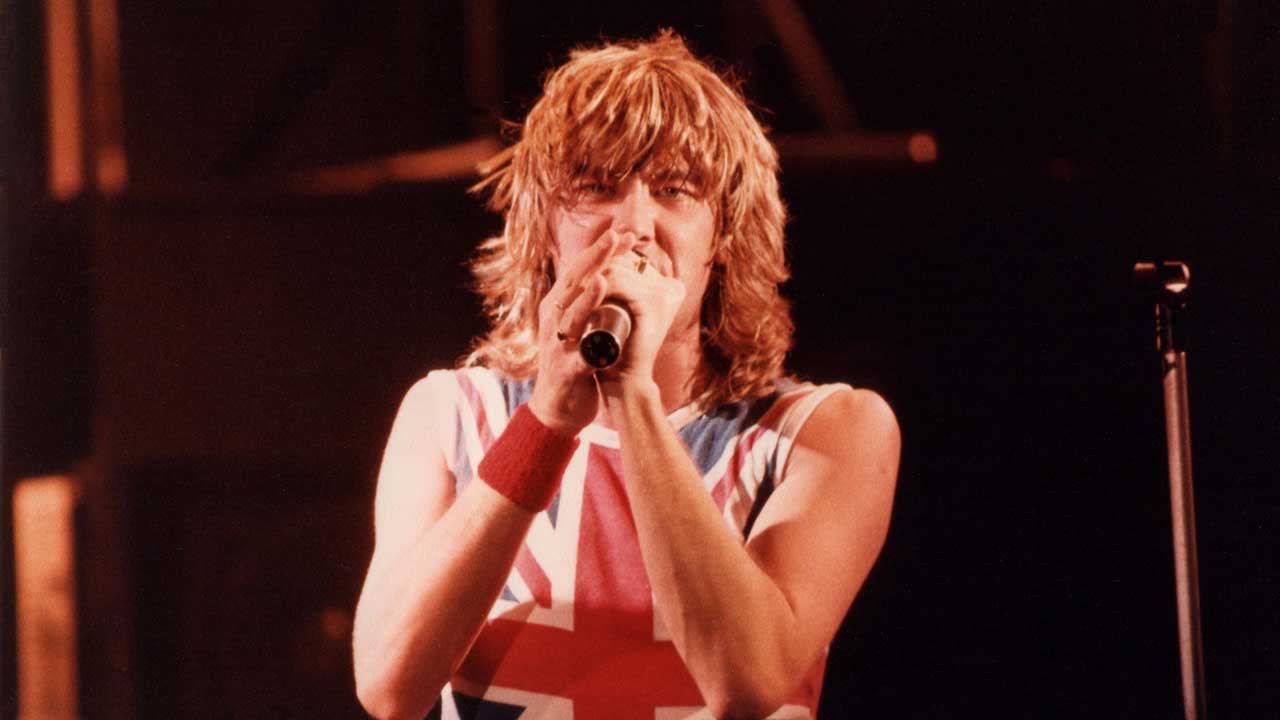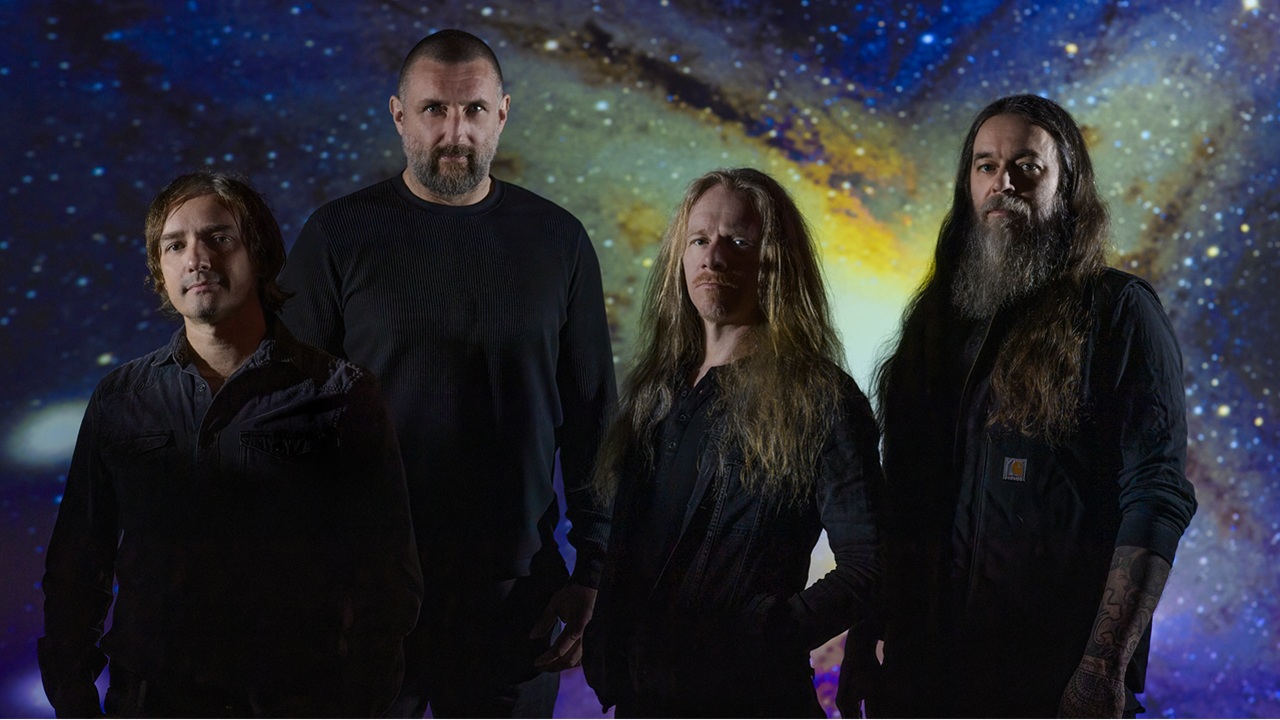"We always play UK tours even if we're operating at a loss": Joe Elliott on the importance of Britain to Def Leppard
In 2008, Joe Elliott sat down with Classic Rock to discuss the band's roots, selling Britain to America, and that iconic Union Jack shirt

Def Leppard have been flying the flag for Britain overseas for a good few years. Forged in 1977 in the steel city of Sheffield, Leppard rose out of the influential New Wave Of British Heavy Metal to become the nation’s biggest rock export since Led Zeppelin, selling more than 100 million albums. “We’ve always been proud to be a British band,” singer Joe Elliott told us in 2008. “Most of our influences are British – Queen, Bowie, Bolan. Culturally it’s where we’re anchored.”
Whose idea was it to wear the Union flag gear?
It started with Rick [Allen] wearing the shorts on the High ’N’ Dry tour in ’81. And later, I wore a Union flag t-shirt in the Photograph video. You didn’t have stylists back then, so I had to kit myself out with a budget of £25. Seriously, we didn’t have any cash. The band was £700,000 in the hole…
I got a belt with handcuffs on – they came in handy for other activities later on. And I got a pair of shiny, black, leather-look trousers, but my legs are so long that the trousers were four inches short. So I got some leg warmers – bright red ones cos I’m a Blades [Sheffield United] fan. Everyone was wearing legwarmers in those days. David Lee Roth had ’em, Bono, the bird in Flashdance… Leg-warmers were the headband of the ankles. And to complete the look I got the Union flag t-shirt from a commercialised punk shop on the King’s Road. It was in the window for £7.99 and I had £8 left – boom! The Photograph video was all over MTV and the shirt said we were a British band.
But let’s not forget my Union flag trousers that I wore at the Freddie Mercury tribute show! We were the only British band on the bill that day [April 20, 1992] and I wanted to make a statement. People took the piss out of those trousers. But it’s like Noddy Holder’s mirrored top hat: you laugh at it, but you’d miss it if it wasn’t there.
Why was it so important for you to make that statement about being British?
Let’s not mince words here, we’re British! Yes, three of us live in California, I live in Ireland and Sav lives in Sheffield, but the important thing is not where you’re at, it’s where you’re from. That’s why Iron Maiden are always going to be an East End band, and we’re always gonna be a Sheffield band. And that’s why we always play UK tours even if we’re operating at a loss. It’s not an obligation, it’s the honourable thing to do. Plus, I guess we do still have that underlying necessity to keep on reminding people that we didn’t just run off to America, as we were accused of doing in the 80s.
Sign up below to get the latest from Classic Rock, plus exclusive special offers, direct to your inbox!
Americans have always loved the fact that you’re British.
They do! In America they really embrace it, millions of ’em! We used to giggle at the amount of Union flag t-shirts we sold in America. Even now, I can go into a shop in LA or wherever and ask for something and they’ll all go, ‘Oh my God, that accent is so cute!’ In England, when I’m down south, all they ever do is laugh at me for being a northerner!
Growing up in early-70s Britain, how did that shape your taste in music?
We had British influences cos that’s what we were spoon-fed as kids. What we heard on the radio – T.Rex, Bowie, Rod Stewart – that’s what we grew to like. It becomes part of your DNA. The first American rock band I really heard was Boston when More Than A Feeling was a hit. We’re a funny band, cos a lot of the stuff we like didn’t really influence us. Bowie, for example. Suffragette City was the first song we ever learnt to play as a band, but we’ve never written a song like it. And I loved Roxy Music, but we always had far too much testosterone going on to write something arty like Bryan Ferry did.
Did Queen have the biggest influence on Leppard?
Queen taught us that you could take your music wherever you wanted to go. We proved that with Hysteria; we had hits with ballads and rock songs and the rap thing [Pour Some Sugar On Me]. And that bravado comes from Queen, who’d do everything from heavy stuff like Brighton Rock to a pop song like Radio Ga Ga. Bowie was the same. He went from folk rock and Space Oddity to almost metal with The Man Who Sold The World, and then he was glam, then a white soul boy, then he went to Berlin and did his Kraftwerk thing, and then he ended up being a pop star with Let’s Dance. That’s brilliant.
Leppard were the most successful British rock band in America since Led Zep. How big an inspiration were Zeppelin?
I didn’t own a Led Zeppelin record until I met Steve [Clark]. I knew the big songs – Rock And Roll, Black Dog, Stairway To Heaven – cos they were always played at parties. But Steve was totally into Zep. Pagey was his biggest influence, right down to the way he had his guitar strap a notch too low. His other big influence, which nobody ever mentions, was Rush’s Alex Lifeson.
Steve was into riffs, and that took us to a different level. He didn’t write songs like me and Sav would do, but he wrote riffs like you wouldn’t believe. And you can hear Steve’s Zeppelin thing in Gods Of War. That was Steve’s baby.
But you styled Def Leppard’s name on Led Zeppelin.
Not really. Let me explain, your honour. I thought up the name when I was 14, and at first I spelt it correctly: Deaf Leopard. It was only later that we changed the spelling to make it more phonetic. And I designed the spiky logo. That’s when people started saying it was like Led Zeppelin.
You’ve often cited Ian Hunter as your greatest hero. Is he also the quintessential British songwriter?
He loves England from a different perspective, cos he lives in America. And nowadays he can get away with his anti-English rants, songs like Rip Off, because the political environment has changed, and people get it now. Hunter’s getting some kudos now from you guys at Classic Rock, but he’s never going to have a hit single again, and that’s a pity, cos he’s still writing great songs like When The World Was Round on the new album [2007's Shrunken Heads]. He’s everything to me. And I’ve stuck with him all the way through. But unfortunately, Ian won’t get his due until he croaks, which isn’t fair.
Looking back, what did the young Joe Elliott dream of as a schoolboy in Sheffield?
I saw Bolan and Bowie on Top Of The Pops and I wanted to be on that stage. I wanted the glory. I didn’t think about their bank balance. I might have thought about the totty, maybe a Rolls-Royce… I wanted to be the singer in the biggest band in the world. And in 1988, well, we fucking made it.
This interview originally appeared in Classic Rock 117, published in April 2008. Def Leppard are currently touring the US with Journey.
Freelance writer for Classic Rock since 2005, Paul Elliott has worked for leading music titles since 1985, including Sounds, Kerrang!, MOJO and Q. He is the author of several books including the first biography of Guns N’ Roses and the autobiography of bodyguard-to-the-stars Danny Francis. He has written liner notes for classic album reissues by artists such as Def Leppard, Thin Lizzy and Kiss, and currently works as content editor for Total Guitar. He lives in Bath - of which David Coverdale recently said: “How very Roman of you!”


